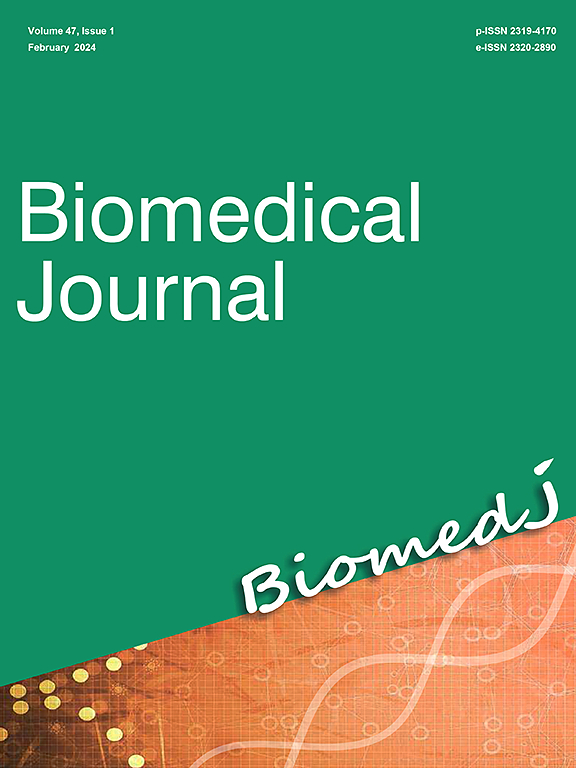Roles and potential of Large language models in healthcare: A comprehensive review
IF 4.4
3区 医学
Q2 BIOCHEMISTRY & MOLECULAR BIOLOGY
引用次数: 0
Abstract
Large Language Models (LLMs) are capable of transforming healthcare by demonstrating remarkable capabilities in language understanding and generation. They have matched or surpassed human performance in standardized medical examinations and assisted in diagnostics across specialties like dermatology, radiology, and ophthalmology. LLMs can enhance patient education by providing accurate, readable, and empathetic responses, and they can streamline clinical workflows through efficient information extraction from unstructured data such as clinical notes. Integrating LLM into clinical practice involves user interface design, clinician training, and effective collaboration between Artificial Intelligence (AI) systems and healthcare professionals. Users must possess a solid understanding of generative AI and domain knowledge to assess the generated content critically. Ethical considerations to ensure patient privacy, data security, mitigating biases, and maintaining transparency are critical for responsible deployment. Future directions for LLMs in healthcare include interdisciplinary collaboration, developing new benchmarks that incorporate safety and ethical measures, advancing multimodal LLMs that integrate text and imaging data, creating LLM-based medical agents capable of complex decision-making, addressing underrepresented specialties like rare diseases, and integrating LLMs with robotic systems to enhance precision in procedures. Emphasizing patient safety, ethical integrity, and human-centered implementation is essential for maximizing the benefits of LLMs, while mitigating potential risks, thereby helping to ensure that these AI tools enhance rather than replace human expertise and compassion in healthcare.
大型语言模型在医疗保健中的作用和潜力:一个全面的综述。
大型语言模型(llm)能够通过展示语言理解和生成方面的卓越能力来改变医疗保健。它们在标准化医学检查方面的表现已经达到或超过了人类,并协助皮肤科、放射科和眼科等专业的诊断。法学硕士可以通过提供准确、可读和共情的回应来加强患者教育,他们可以通过从临床记录等非结构化数据中高效地提取信息来简化临床工作流程。将LLM整合到临床实践中涉及用户界面设计,临床医生培训以及人工智能(AI)系统和医疗保健专业人员之间的有效协作。用户必须对生成式人工智能和领域知识有扎实的理解,才能批判性地评估生成的内容。确保患者隐私、数据安全、减轻偏见和保持透明度的伦理考虑对于负责任的部署至关重要。法学硕士在医疗保健领域的未来发展方向包括跨学科合作,开发包含安全和伦理措施的新基准,推进整合文本和图像数据的多模式法学硕士,创建能够进行复杂决策的基于法学硕士的医疗代理,解决罕见疾病等代表性不足的专业,以及将法学硕士与机器人系统集成以提高程序的准确性。强调患者安全、道德诚信和以人为本的实施对于llm的利益最大化至关重要,同时降低潜在风险,从而有助于确保这些人工智能工具增强而不是取代医疗保健领域的人类专业知识和同情心。
本文章由计算机程序翻译,如有差异,请以英文原文为准。
求助全文
约1分钟内获得全文
求助全文
来源期刊

Biomedical Journal
Medicine-General Medicine
CiteScore
11.60
自引率
1.80%
发文量
128
审稿时长
42 days
期刊介绍:
Biomedical Journal publishes 6 peer-reviewed issues per year in all fields of clinical and biomedical sciences for an internationally diverse authorship. Unlike most open access journals, which are free to readers but not authors, Biomedical Journal does not charge for subscription, submission, processing or publication of manuscripts, nor for color reproduction of photographs.
Clinical studies, accounts of clinical trials, biomarker studies, and characterization of human pathogens are within the scope of the journal, as well as basic studies in model species such as Escherichia coli, Caenorhabditis elegans, Drosophila melanogaster, and Mus musculus revealing the function of molecules, cells, and tissues relevant for human health. However, articles on other species can be published if they contribute to our understanding of basic mechanisms of biology.
A highly-cited international editorial board assures timely publication of manuscripts. Reviews on recent progress in biomedical sciences are commissioned by the editors.
 求助内容:
求助内容: 应助结果提醒方式:
应助结果提醒方式:


